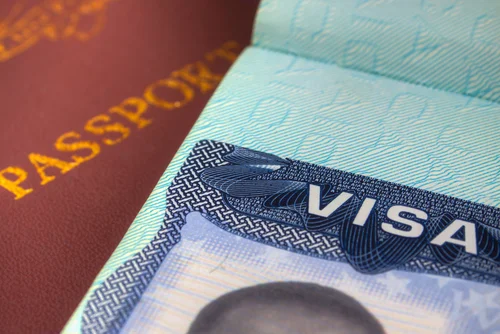 An immigration status in the United States refers to the legal classification assigned to someone. This status determines the rights, obligations, and legalities of their presence in the country. It is a critical factor shaping their lives, influencing everything from employment opportunities to the ability to travel.
An immigration status in the United States refers to the legal classification assigned to someone. This status determines the rights, obligations, and legalities of their presence in the country. It is a critical factor shaping their lives, influencing everything from employment opportunities to the ability to travel.
Understanding the various types of immigration status is crucial for anyone navigating the complex landscape of U.S. immigration law. Offering comprehensive guidance and representation to individuals and businesses dealing with immigration issues – our immigration attorney in Albany, NY at The Towne Law Firm, P.C. provides clarity for those seeking to understand their own status or that of others.
Types of Immigration Status
Dealing with immigration status can be complex and often requires legal guidance from an immigration attorney in Albany, NY. Different forms of immigration status include naturalized citizen, lawful permanent resident, conditional permanent resident?
1. Naturalized Citizen
Naturalization is the process by which a foreign national becomes a U.S. citizen after fulfilling requirements established in the Immigration and Nationality Act (INA). This process typically includes lawful permanent residency for a certain period, demonstrating an understanding of English and U.S. history and government, and taking an oath of allegiance to the United States.
2. Lawful Permanent Resident (LPR)
Lawful Permanent Resident status offers various paths for individuals, encompassing family, employment, and humanitarian-based avenues
- Family-based LPR: This category allows U.S. citizens and current LPRs to sponsor certain family members for a visa that provides permanent residency. The process involves proving a qualifying relationship, meeting income requirements, and the immigrant undergoing a vetting process.
- Employment-based LPR: Aimed at skilled workers, these visas require a U.S. employer to sponsor the immigrant. Categories range from individuals with extraordinary abilities in certain fields to skilled and unskilled workers.
- Refugees and Asylees: Individuals who flee their country due to persecution or a well-founded fear of persecution based on race, religion, nationality, political opinion, or membership in a particular social group may seek asylum or refugee status. Upon meeting certain criteria, they may apply for LPR status.
3. Conditional Permanent Resident
A Conditional Permanent Resident refers to an individual who has been granted permanent residency status but with certain conditions attached. This status is typically given to individuals who gain residency through marriage to a U.S. citizen or permanent resident, or to entrepreneurs who invest in the U.S. economy, under the EB-5 investor program.
Failure to file the appropriate petition to remove conditions on time can lead to the loss of conditional resident status and potentially result in deportation. It is crucial for conditional permanent residents to adhere to the specific requirements and timelines to transition to full permanent residency.
4. Non-immigrant
Non-immigrant status caters to a range of temporary stays, from professional work assignments and academic pursuits to tourism, each with its unique requirements and conditions.
- Work Visas: These temporary visas are for specific employment purposes. The H-1B visa, for instance, is for individuals in specialty occupations requiring a higher education degree. Other categories include L-1 visas for intra-company transferees and O visas for those with extraordinary ability in their field.
- Student Visas: The F-1 visa is the most common student visa, allowing foreign nationals to pursue education in the U.S. Students must maintain a full course of study and are limited in how much they can work.
- Tourist Visas: B visas are for individuals visiting the U.S. for leisure (B-2), or business purposes (B-1). These are short-term visas allowing entry for specific activities like tourism, certain business activities, or medical treatment.
4. Special Immigrant Juvenile (SIJ)
Special immigrant juvenile status is a unique immigration classification in the United States, designed to help foreign children in the U.S. who have been abused, neglected, or abandoned by one or both parents. This status provides a pathway to lawful permanent residency for these vulnerable children.
5. Undocumented
This includes individuals who enter the U.S. without proper authorization or those who overstay their visas. Lacking formal immigration status, they often face significant legal and social challenges.
An Albany Immigration Attorney Ready to Help With Your Immigration Status
If you are seeking assistance with your immigration status or have questions about the process, do not hesitate to reach out to our Albany, NY immigration attorney. At The Towne Law Firm, P.C., we commit ourselves to guiding individuals and business clients through the intricacies of immigration law. Contact us today for personalized consultation and representation.














